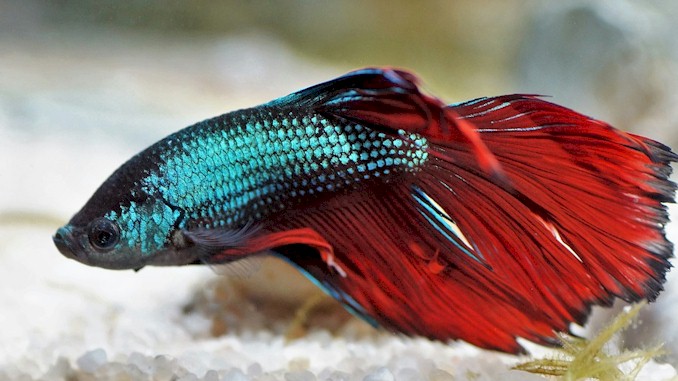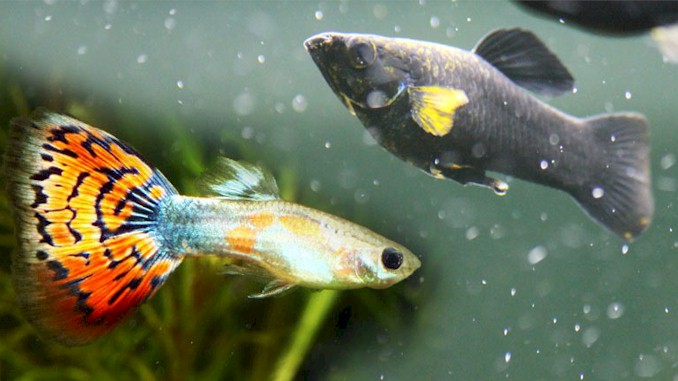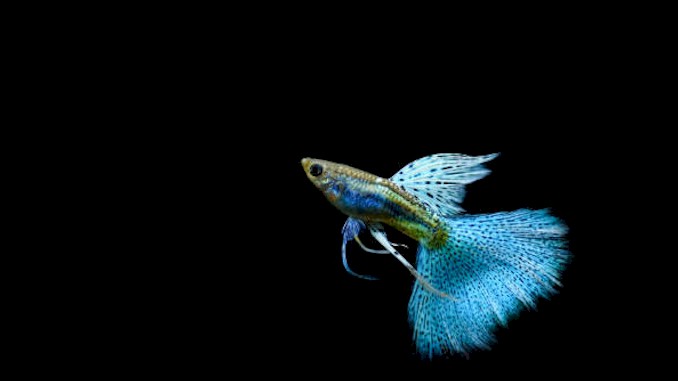Betta Fish Lighting: A Complete Guide for Beginners
I recently acquired a betta fish and began preparing its habitat. However, being unfamiliar with betta care, I had several inquiries. One of my concerns was whether bettas require light to thrive. Therefore, I took to Google to seek answers, and here’s what I uncovered:
Betta fish do not need a light to live happily, as they can adjust to different light cycles and conditions. However, a light can provide some benefits for betta fish, such as regulating their circadian rhythm, enhancing their colors, and stimulating their natural behaviors. A light can also help plants and other organisms in the tank to thrive, creating a more natural and balanced ecosystem for the betta fish.
Now that you know that betta fish do not need a light to live happily, you might be wondering how to use a light for your betta fish tank in the best way possible. There are some important factors to consider, such as the type, intensity, duration, and schedule of the light. You also need to be aware of some potential problems that a light can cause for your betta fish, such as stress, algae growth, and disease. In the following sections, I will share with you everything you need to know about using a light for your betta fish tank. You don’t want to miss this valuable information that will help you make your betta fish happy and healthy.
Do Betta Fish Need a Light to Live Happily?
You might think that betta fish are happy in the dark since they often hide in plants and decorations. However, that’s not the case. Betta fish do need light to live happily, just like most other animals. Light helps them regulate their sleep/wake cycle, their appetite, their color, and their behavior. In this section, I will explain why light is important for betta fish and how much light they need.
Betta fish are diurnal animals, which means they are active during the day and sleep at night. In the wild, betta fish live in shallow waters where they receive natural sunlight and moonlight. These light sources provide them with cues to know when it’s time to be awake or asleep. Without a proper day/night cycle, betta fish can become stressed, confused, and sick.
Light also affects the appetite of betta fish. Betta fish tend to eat more when there is light and less when there is darkness. This is because light stimulates their metabolism and digestion. If betta fish don’t get enough light, they might lose their appetite and become malnourished. On the other hand, if they get too much light, they might overeat and become obese.
Another benefit of light for betta fish is that it enhances their color. Betta fish have special cells called chromatophores that produce pigments in their scales. These pigments reflect different wavelengths of light and create the beautiful colors that we see on betta fish. Light stimulates the production of these pigments and makes them more vibrant. If betta fish don’t get enough light, their color can fade over time.
Finally, light can affect the behavior of betta fish. Light can stimulate their natural instincts and make them more active and curious. Betta fish like to explore their surroundings and interact with other things in their tank. Light can also help them see better and avoid predators or threats. However, too much light can also cause problems for betta fish. Too much light can make them overstimulated, restless, and aggressive. It can also cause reflections in the glass that can trigger their territorial instincts and make them flare at themselves.
So, how much light do betta fish need? The general recommendation is to provide them with 14-16 hours of light per day for good health. You can use an artificial light source that mimics natural sunlight or moonlight. You should avoid direct sunlight or very bright lights that can harm your betta fish or cause algae growth in your tank. You should also turn off the light at night or use a very dim light to allow your betta fish to rest peacefully.
Benefits of a Light for Betta Fish
You might think that light is only for your convenience, so you can see your betta fish better. However, light also has some important benefits for your betta fish. In this section, I will explain some of the benefits of light for betta fish and how it can improve their quality of life.
- Helps Bettas Stay Active: As we mentioned before, light helps bettas stay active and swim around more. This activity is important for their overall health and well-being. It helps them exercise their muscles, burn calories, and prevent boredom. It also stimulates their natural instincts and behaviors, such as hunting, exploring, and flaring. Active bettas are happier and healthier than inactive ones.
- Helps Bettas Stay Healthy: Light also has some important health benefits for bettas. One study found that fish that were exposed to more light had lower levels of melatonin. Melatonin is a hormone that is linked to sleep and stress. High levels of melatonin can suppress the immune system and make bettas more prone to infections and diseases. By providing your betta with enough light, you can help them lower their melatonin levels and boost their immune system.
- Helps Bettas Stay Colorful: Light also helps bettas stay colorful by stimulating the production of pigments in their scales. These pigments reflect different wavelengths of light and create the beautiful colors that we see on bettas. Without enough light, these pigments can fade over time and make your betta look dull and pale. By providing your betta with enough light, you can help them maintain their vibrant colors and appearance.
- Helps Bettas Stay Happy: Light also helps bettas stay happy by providing them with a natural day/night cycle. This cycle helps them regulate their sleep/wake cycle, their appetite, and their mood. Without a proper day/night cycle, bettas can become stressed, confused, and depressed. By providing your betta with enough light, you can help them feel comfortable and relaxed.
As you can see, light has many benefits for your betta fish. However, not all lights are created equal. In the next section, I will explain how to choose the best light for your betta fish tank.
How to Choose the Best Light for Your Betta Fish Tank
Now that you know the benefits of light for your betta fish, you might be wondering how to choose the best light for your betta fish tank. There are many types and brands of lights available on the market, but not all of them are suitable for your betta fish. In this section, I will explain some of the factors to consider when choosing a light for your betta fish tank.
Type of Light
The most common types of lights for aquariums are fluorescent, LED, and metal halide. Each type has its pros and cons, depending on your needs and preferences.
Fluorescent lights are cheap, energy-efficient, and long-lasting. They also provide a good spectrum of light for betta fish and plants. However, they can be dim and bulky, and they need to be replaced at least once a year.
LED lights are more expensive, but they are also more energy-efficient, durable, and versatile. They can produce different colors and intensities of light, which can be adjusted to suit your betta fish and plants. They also produce very little heat and last longer than fluorescent lights. However, they can be too bright or harsh for some betta fish, and they can cause reflections in the glass.
Metal halide lights are very powerful and bright. They can produce a natural-looking light that mimics sunlight or moonlight. They also promote fast plant growth and enhance betta fish colors. However, they are very expensive, consume a lot of energy, and produce a lot of heat. They can also cause algae growth and burn your betta fish or plants if not used properly.
Intensity of Light
The intensity of light is measured in lumens or watts per gallon. The intensity of light affects the brightness and clarity of your tank water, as well as the growth and health of your betta fish and plants.
The ideal intensity of light for your betta fish tank depends on the size of your tank, the type of plants you have, and the preference of your betta fish. Generally speaking, you should aim for 10-20 lumens per liter or 1-2 watts per gallon for a low-light tank with no plants or few plants.
You should aim for 20-40 lumens per liter or 2-4 watts per gallon for a medium-light tank with some plants. You should aim for 40-80 lumens per liter or 4-8 watts per gallon for a high-light tank with many plants.
Duration of Light
The duration of light is how long you keep the light on in your tank each day. The duration of light affects the day/night cycle of your betta fish, as well as the growth and health of your plants.
The ideal duration of light for your betta fish tank depends on the type of plants you have, the season, and the preference of your betta fish. Generally speaking, you should provide your betta fish with 14-16 hours of light per day for good health.
You can use a timer to turn the light on and off automatically at regular intervals. You should also mimic the natural sunrise and sunset by gradually increasing or decreasing the intensity of light at the beginning or end of each day.
Color Temperature
The color temperature is measured in Kelvin (K) and indicates how warm or cool the light appears. The color temperature affects the appearance and mood of your tank water, as well as the color perception and behavior of your betta fish.
The ideal color temperature for your betta fish tank depends on the type of plants you have, the time of day, and the preference of your betta fish. Generally speaking, you should choose a color temperature that matches natural sunlight or moonlight for your betta fish tank.
A color temperature between 5000K-7000K is considered neutral white and suitable for most tanks. A color temperature below 5000K is considered warm yellow or orange and suitable for sunrise or sunset effects. A color temperature above 7000K is considered cool blue or purple and suitable for moonlight effects.
As you can see, choosing a light for your betta fish tank is not a simple task. There are a few elements you have to consider to make the right decision.
How to Set Up a Light Schedule for Your Betta Fish
You have chosen the best light for your betta fish tank, but how do you set up a light schedule for your betta fish? A light schedule is the pattern of light and dark periods that you provide for your betta fish each day. A light schedule is important for your betta fish because it helps them regulate their sleep/wake cycle, their appetite, their mood, and their health. Here, I will share with you what I have learned about how to set up a light schedule for your betta fish that mimics their natural environment.
Determine the Ideal Duration of Light
The first step is to determine how long you should keep the light on in your tank each day. This depends on the season, the type of plants you have, and the preference of your betta fish. Generally speaking, you should provide your betta fish with 14-16 hours of light per day for good health.
This is similar to the typical daily cycle in the tropics, where betta fish originate from. However, you can adjust this duration according to the season. For example, you can provide more light during summer and less light during winter to mimic the natural changes in daylight hours.
You can also adjust this duration according to the type of plants you have. For example, if you have low-light plants, you can provide less light than if you have high-light plants. You can also adjust this duration according to the preference of your betta fish. For example, if your betta fish seems stressed or restless with too much light, you can reduce it slightly until they seem comfortable.
Choose a Consistent Time to Turn On and Off the Light
The second step is to choose a consistent time to turn on and off the light in your tank each day. This helps your betta fish establish a regular rhythm and avoid confusion or stress.
You can choose any time that suits your schedule and lifestyle, as long as it is consistent. For example, you can turn on the light at 8 am and turn off the light at 10 pm every day. You can use a timer to turn on and off the light automatically at regular intervals. This way, you don’t have to worry about forgetting or being away from home.
Mimic the Natural Sunrise and Sunset
The third step is to mimic the natural sunrise and sunset by gradually increasing or decreasing the intensity of light at the beginning or end of each day. This helps your betta fish adjust smoothly and naturally to the changes in light levels.
You can do this by using a dimmer switch or a programmable LED light that allows you to change the brightness and color temperature of the light. For example, you can start with a warm yellow or orange light at low intensity in the morning and gradually increase it to a neutral white light at medium intensity by noon. Then, you can gradually decrease it to a cool blue or purple light at low intensity by evening and turn it off completely by night.
By following these steps, you can set up a light schedule for your betta fish that mimics their natural environment and helps them stay healthy and happy.
Potential Problems of Using a Light for Betta Fish and How to Avoid Them
While light is beneficial for your betta fish, it can also cause some problems if not used properly. Too much light or too little light can both have negative effects on your betta fish and their tank environment. Now, I’m going to explain some of the potential problems of using a light for betta fish to you, and some guide lines of how to avoid them.
Overstimulation and Stress
If your betta fish is exposed to too much artificial light, they may become overstimulated and stressed. Overstimulation causes your betta fish to be more active for longer, which can exhaust them and make them restless.
Stress can weaken their immune system and make them more prone to infections and diseases. Stress can also affect their appetite, mood, and behavior.
To avoid overstimulation and stress, you should provide your betta fish with a moderate amount of light that mimics their natural day/night cycle. You should also avoid direct sunlight or very bright lights that can harm your betta fish or cause reflections in the glass.
Algae Growth
If your betta fish tank receives too much light, it can also promote algae growth. Algae are microscopic plants that grow in water and use light as their energy source. Algae can be beneficial for your tank in small amounts, as they provide oxygen and food for some organisms.
However, algae can also be harmful for your tank in large amounts, as they consume nutrients, reduce water quality, block filters, clog equipment, and create unpleasant odors. Algae can also compete with your plants for light and nutrients, which can stunt their growth or kill them.
To avoid algae growth, you should limit the amount of light that reaches your tank. You should also keep your tank clean, perform regular water changes, remove excess food and waste, add live plants or algae-eating animals, and use an algae scraper or chemical treatment if necessary.
Plant Burn
If your betta fish tank has live plants, you should also be careful about the amount and type of light that you use. Too much light or the wrong type of light can burn your plants or cause them to grow too fast or too slow.
Plant burn is when the leaves of your plants turn brown or yellow due to excessive heat or light exposure. This can damage or kill your plants over time. Plant burn can also affect the photosynthesis process of your plants, which can reduce the oxygen production and affect the water quality of your tank.
To avoid plant burn, you should choose a light that is suitable for your plants’ needs. You should also monitor the temperature and pH of your water regularly and adjust them if needed. You should also prune your plants regularly to remove any dead or damaged leaves.
Conclusion
You have learned everything you need to know about using a light for your betta fish tank. Now you know why light is important for your betta fish, how much light they need, what type of light they prefer, how to set up a light schedule for them, and what problems to avoid when using a light for them.
Light is not only for your convenience, but also for your betta fish’s well-being. Light helps them regulate their sleep/wake cycle, their appetite, their color, and their behavior. Light also helps them stay active, healthy, colorful, and happy. However, light can also cause some problems if not used properly. Too much light or too little light can both have negative effects on your betta fish and their tank environment. Therefore, you should provide your betta fish with a moderate amount of light that mimics their natural day/night cycle. You should also choose a light that is suitable for your tank size, your plants’ needs, and your betta fish’s preference. You should also monitor the temperature and water quality of your tank regularly and adjust them if needed.
I hope this blog post has been helpful and informative for you. If you have any questions or comments about using a light for your betta fish tank, feel free to leave them below. I would love to hear from you and help you out. Thank you for reading and happy fishkeeping!
